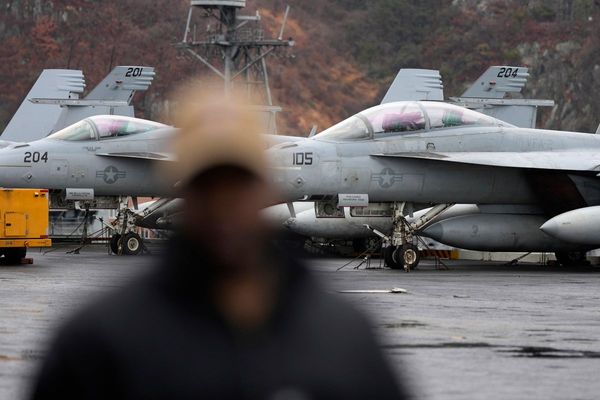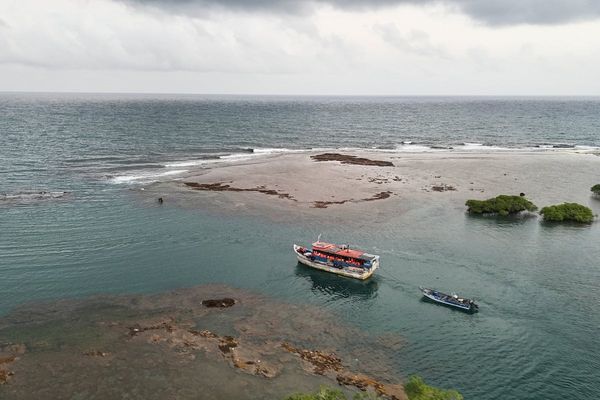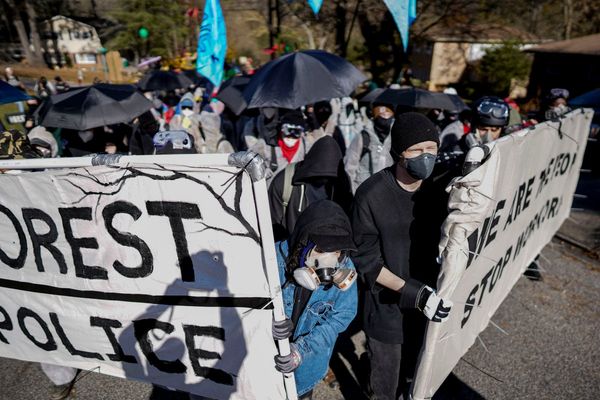
For years the close links between the Victorian branch of the CFMEU and the Victorian Labor Party, especially the Andrews government, have been the subject of extensive allegations. It turns out that many of the allegations, denied at the time, were right.
The revelations from Nine newspapers’ excellent series on the CFMEU’s links with organised crime, corruption, intimidation and kickbacks are partly fuelled by the Andrews government’s massive infrastructure spending — the so-called $100 billion Big Build — including projects like the Suburban Rail Loop (for which no credible business case exists).
The Big Build has turned out instead to be the Big Feed for corrupt union officials demanding kickbacks for firms that wanted work on state government projects. And no-one objected because ultimately it was the taxpayer paying.
In 2022 the Andrews government was accused of encouraging John Setka’s CFMEU, which played an important role in that government’s factional balance, to elbow aside the Australian Workers’ Union (AWU) from civil projects in the state. “What’s the problem?” Andrews responded when asked about why Treasurer Tim Pallas attended a CFMEU fundraiser.
Turns out the government-facilitated move of the CFMEU into civil construction was indeed happening. Companies needed an enterprise bargaining agreement (EBA) with the CFMEU to get access to Big Build projects, and that meant allegedly paying bribes to fixers to deliver CFMEU EBAs — and driving workers linked to the “wrong companies” to suicide.
The corruption around Indigenous infrastructure participation — which claimed the life of 19-year-old Ben Nash — is particularly sickening. The Big Build has an Aboriginal employment target of 2.5% of hours worked. Indigenous firm Marda Dandhi, where Nash had previously worked, was targeted by the CFMEU because it had an EBA with the AWU. It was told it would not be able to access Big Build projects, the Nine material shows.
In May last year, Nyunggai Warren Mundine criticised the Andrews government for “washing its hands” after now-Premier Jacinta Allan failed to respond to allegations about the CFMEU forcing Indigenous firms off Big Build projects. “Simply wrong,” Andrews responded at the time.
Turns out Mundine was right.
At the same time as Andrews was trying to dismiss the scandal over Indigenous participation, state public works body Development Victoria was telling firms interested in tendering for building the now abandoned Commonwealth Games athletes villages that “the following unions may need to be consulted and engaged with based on the scope of the works”: the CFMEU, the Electrical Trades Union, the Plumbing Trades Employees Union and Victorian Trades Hall Council.
Conspicuously absent was the AWU.
This was formalised soft corruption at the very least, with a key Labor donor and factional player elevated to formal status as an automatic partner for any company seeking to tender for major government projects. No wonder CFMEU officials thought Big Build projects were “their projects” and that “they control the market”. Like an oligopolistic firm exploiting its market power to gouge customers, the CFMEU was exploiting its market power to enrich its executives — and threatening competitors who might undermine that power.
Only when confronted with evidence too large to ignore as part of a multimedia campaign did Premier Allan finally decide to act, asking for all CFMEU enterprise bargaining agreements to be reviewed and for the Victorian ALP to suspend the CFMEU’s Victorian division.
“We will also be undertaking an independent review of all Victorian government workplace agencies who are engaged with construction companies and with construction unions, and this review we will put in place in coming days,” Allan said yesterday, effectively acknowledging that the Victorian public sector had absorbed Victorian Labor’s links with the CFMEU like a poison.
The huge rise in infrastructure costs, particularly of major projects, has forced big changes in the level of investment by governments, with projects delayed and taxpayers on the hook for big blowouts. The causes of these blowouts — skill shortages, higher building material costs, poor business cases by governments, poor project selection — have been well known.
Now it’s clear that in Victoria, and likely in New South Wales and the ACT, the CFMEU has made its own spectacular contribution to infrastructure blowouts. And it was enabled by a Labor government with a truly rotten culture.
Is something rotten in the state of Denmark Victoria? Let us know your thoughts by writing to letters@crikey.com.au. Please include your full name to be considered for publication. We reserve the right to edit for length and clarity.







